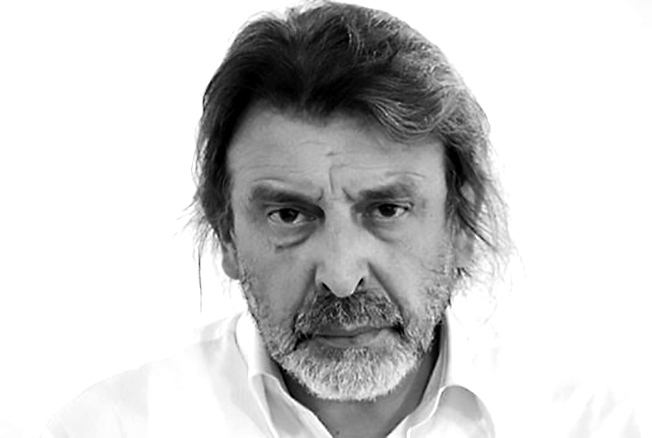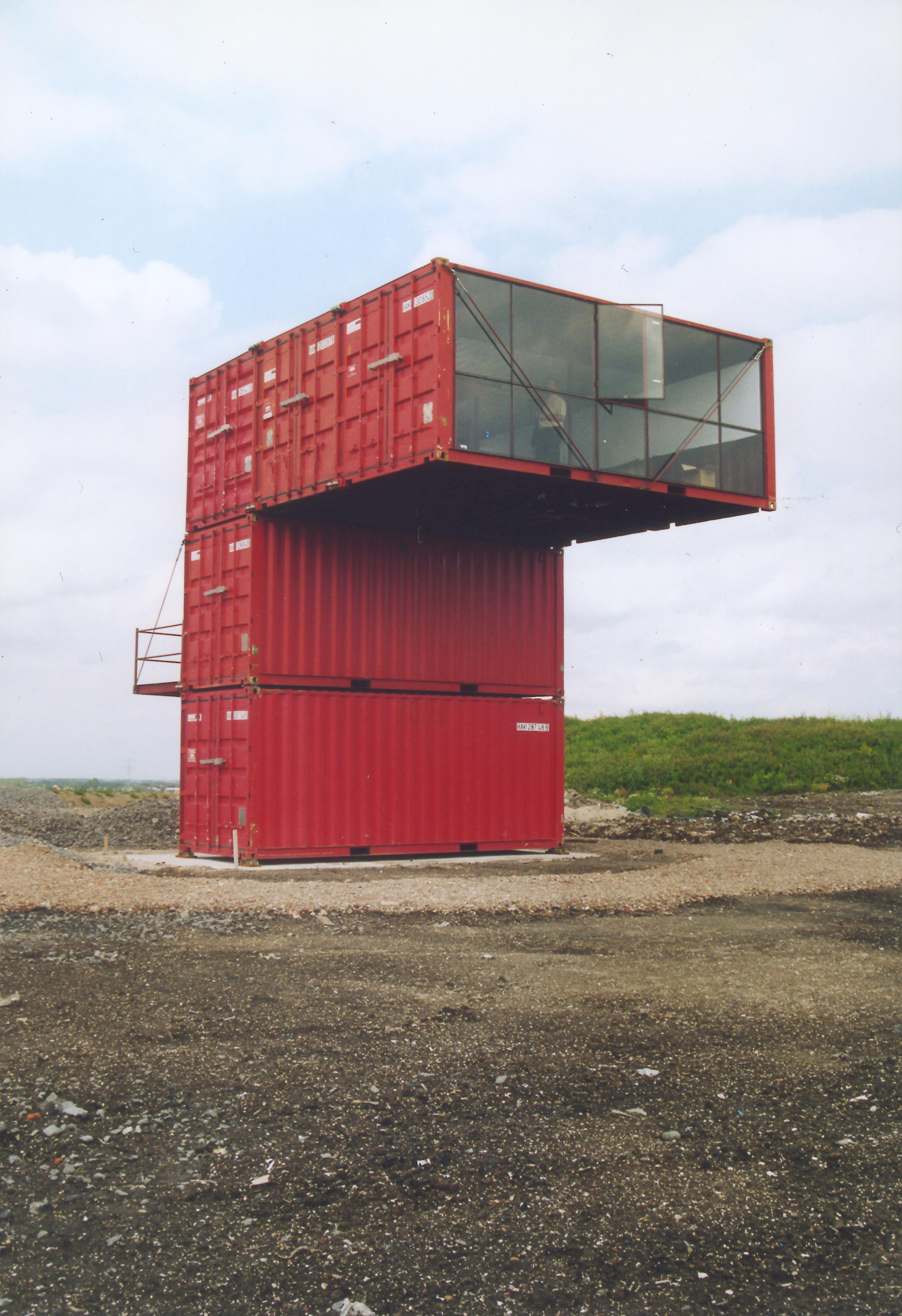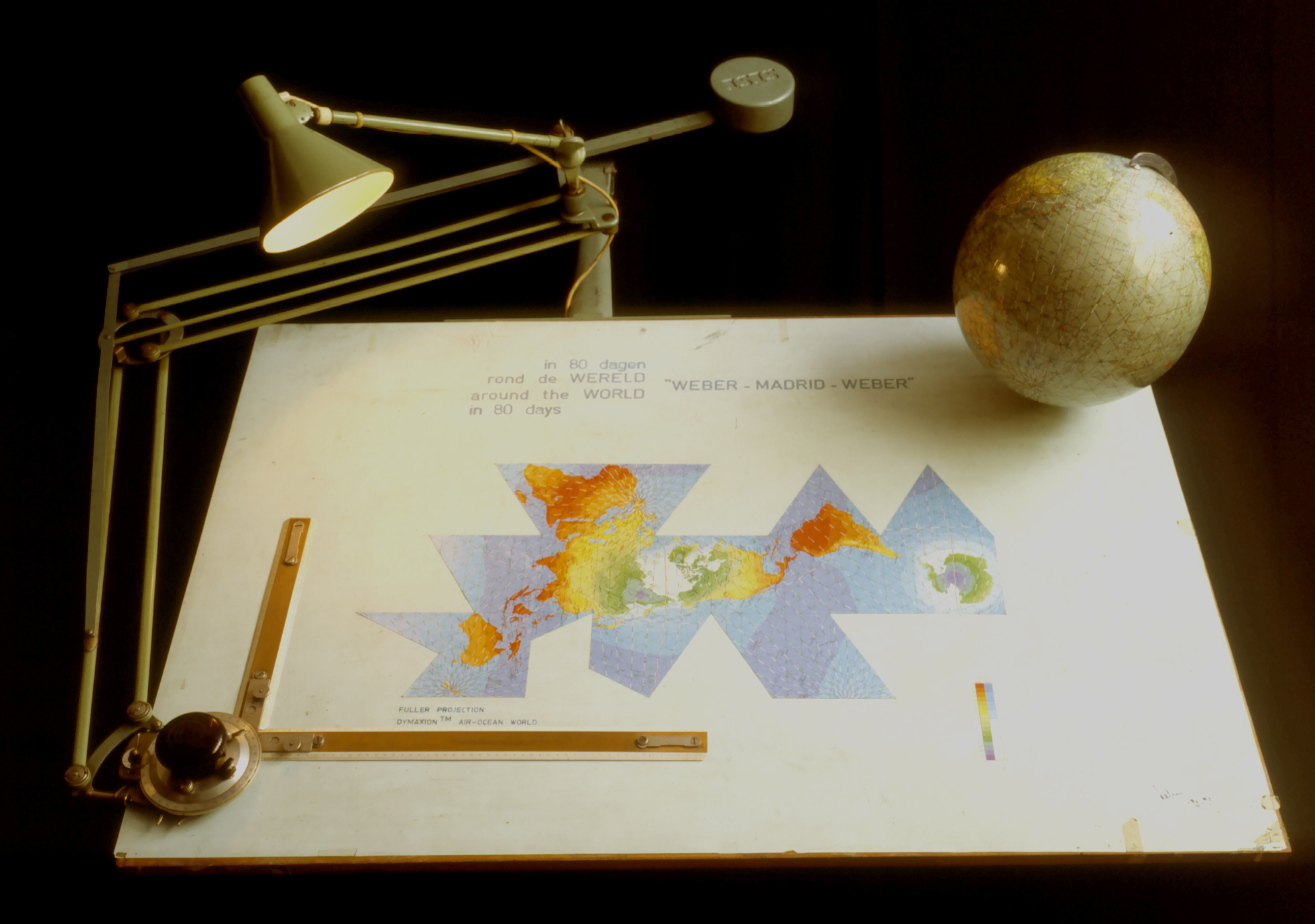LUC DELEU
Orbanisme
/
Urbi = Orbi
FRIDAY, JUNE 27, 2022
ABOUT
THIS
PANEL
Die Frage warum wir in die aktuelle Klimakrise geraten sind und warum wir nicht viel früher etwas dagegen unternommen haben, treibt uns zurecht um. Jemand, der sich diesbezüglich nichts vorzuwerfen hat, ist unser Gast, Luc Deleu. Er hat in einer Zeit des Fortschrittsoptimismus und der 68-er Bewegung studiert. Sein Diplom bekam er im Jahr der Mondlandung. Gleich in die ersten Jahre der Existenz seines Architekturbüros „T.O.P. Office“ fielen die Ölkrise und der Bericht des Club of Rome. Kein Wunder also, dass er sich am Beginn seiner Karriere von der bis dato gängigen Architekturpraxis verabschieden und einen radikal nachhaltigen neuen Weg „in das Vacuum für neue Dimensionen“ einschlagen wollte. Luc Deleu hat sich mit den Jahren immer weniger explizit politisch geäußert und hat vermehrt durch seine architektonischen und künstlerischen Arbeiten auf die für ihn wichtigen gesellschaftlichen und öko-logischen Fragen geantwortet. Seine Forderungen und Manifeste haben heute erschreckende Aktualität und verdienen es, endlich ernst genommen zu werden.
—
The question of why we got into the current climate crisis and why we didn’t do something about it much sooner is rightly on our minds. Someone who has nothing to reproach himself for in this regard is our guest, Luc Deleu. He studied at a time of optimism about progress and the ‘68 movement. He got his diploma in the year of the moon landing. Right in the first years of the existence of his architectural office “T.O.P. Office” fell the oil crisis and the report of the Club of Rome. No wonder, then, that at the beginning of his career he wanted to say goodbye to the hitherto common architectural practice and embark on a radically sustainable new path “into the vacuum for new dimensions.“ Luc Deleu has expressed himself less explicitly politically over the years and has increasingly responded through his architectural and artistic works to the social and environmental issues that are important to him. His demands and manifestos are frighteningly topical today and deserve to be taken seriously at last.

STATEMENT
MANIFESTE D’ORBANISME /ORBAN PLANNING MANIFESTO
(EXCERPTS)
As long as we cannot move away from the earth in masses, or cannot import from space, the earth is a planet completely dependent upon itself, apart from the (necessary) solar energy and maybe other (not) defined, but necessary space energy.
One third of world population is starving. The means that the agricultural area is already one third too small to provide for the reel needs. […]
All that is disturbing and unnecessary must be disposed of (shot into space). What remains should be stored in a clear and compact manner (avoiding one-dimensional use of these storage places). Because all biological commu-nities […] are closely linked to each other, we must pay attention not to support any of them. This means that pollution should be kept at a minimum and that everything possible will have to be recycled. […]
I dare hope that the above world image of „monumental times“ makes it clear that town planning and architecture should be considered from a new, „orbanic“ point of view. During „monumental times“ town planning and architecture make use of organic priorities. The esthetic priorities and the styles of the „non-monumental times“ no longer apply in a situation of do it yourself architecture and self made cities, in which every individual determines the urban environment.
The function of the town planner architect (orban planner) in „monumental times“ has even become of a totally different meaning. Very much the same as the (pictorial) function of a painting (in western art) after the invention of photography, town planning and architecture (orban planning) underwent an important change of function and meaning. „Information“ (reduction of uncertainty) is now an important part of the „monumental“ medium, a trendsetter and/or town fool, etc… He designs, publishes, performs, shows, realizes or plays, etc…
„Free space“ is his goal from now on. Instead of infrastructures, determining earth space and making it one-dimensional, the orban planner now uses infrastructures, enlarging earth space without limiting the variety of possibilities.
The orban planner has become primarily a theoretician, who in rare cases realizes his visionary views on spaces of the planet earth.
The planet earth, although dynamic and evolving, on which orban planning realizes itself under influence of the actions of all individuals, can at every moment be considered as completed during „monumental times“.
LUC DELEU, 1980



QUESTIONS
Was sind die Prinzipien
vom Orbanismus?
What are the principles
of orban planning?
Sind Forschungsprojekte
realer als reale Projekte?
Are research projects more
real than real projects?
Muss man jung mit
radikalen Forderungen
agieren, um im Alter
nuancierter zu werden?
Do you have to act
radically in young age
in order to become more
nuanced in later year?
Ist die Erde unser
wichtigster Maßstab?
Is the Earth the
most important scale?
Urbi et orbi könnte nicht
nur ein katholischer, aber
auch ein universeller
Slogan sein – meinen
Sie nicht auch?
Urbi et orbi could be
not only a Catholic slogan
but also a universal one –
don‘t you think?
Wer oder was hat
Sie in Ihrem Leben am
meisten gelehrt?
Who or what did teach
you most in your life?
Woher haben Sie Ihren
zivilen Ungehorsam gelernt?
From what did you learn
your civil disobedience?
Was bedeutet das
Reisen für Sie?
What does traveling
mean to you?
50 Jahre nach dem Club
of Rome – wie viel
Optimismus haben
Sie noch für das
Wohlergehen unseres
Planeten?
50 years after the Club of
Rome – how much
optimism do you have
for our planetary
wellbeing?
Welche Rolle wird das
Thema Governance in
Zukunft spielen?
What role governance will
play in the future?
Wie können Städte auf
migrationsbedingte regionale
Ungleichheiten reagieren?
How can cities respond
to migration-related
regional inequalities?
Unsere Wahrnehmung ist
immer kontext- bzw.
umweltbezogen,
gibt es gleichwohl nicht
widerlegbare Wahrheiten?
Our perception is always
contextual and influenced
by our environment,
are there nevertheless
non-refutable truths?
︎
︎︎︎
PANEL ARCHIVE BY TOPIC
RESOURCES
Panel 24
GIOVANNI VECCHIATO
social coding / spatial coding
2025
—
Panel 22
AIMÉE VAN WYNSBERGHE
AI + Ethics / Der unstillbare Hunger der KI
2024
—
Panel 15
SEMIR ZEKI
Is beauty really subjective and can it be quantified? / Cortex (A1)
2020
—
Panel 12
GIACOMO PIRAZZOLI
Green Up / (Crossinglab.com)
2014
—
Panel 8
MARTINA FINEDER and
THOMAS GEISLER
Design Clinic / Das Papanek Konzept
2012
—
Panel 5
MUCK PETZET
Now is tomorrow / Bauen im Bestand
2012
JAPAN
Panel 9
CHRISTINE VENDREDI-AUZANNEAU and
MARIO CARPO
Identicality
2013
—
Panel 7
TERUNOBU FUJIMORI
Der Zauber des Terunobu Fujimori / International Vernacular
2012
—
Panel 4
MASAMI SAITO and HANNES RÖSLER
The architecture of food / Gebaute Speisen
2011
—
Panel 3
MURIELLE HLADIK and WILFRIED KÜHN
Passage du temps
2011
—
Panel 1
MOMOYO KAIJIMA
Atelier Bow-Wow
2010
︎︎︎
PANEL 24 — Resources
GIOVANNI VECCHIATO
social coding / spatial coding
PANEL 23 — Carte blanche
MARKUS GABRIEL /
JOCELYN MACLURE
A Dinner Party
2.0
PANEL 22 — Resources
AIMÉE VAN WYNSBERGHE
AI + Ethics /
Der unstillbare Hunger der KI
PANEL 21 — Carte blanche
YSC – YOUNG SECURITY
CONFERENCE
Art, War and Revolution /
Ausdrucksformen der Verwüstung
und Genesung
PANEL 20 — Carte blanche
ALEX RÜHLE
Lesung: Europa – wo bist du?
Unterwegs in einem
aufgewühlten Kontinent
PANEL 19 — La Cittá
ELISABETH MERK
ANDREAS HOFER
MICHAEL BUHRS
MARKUS STENGER
Transformation der Orte / What’s your program?
PANEL 3 — Japan
MURIELLE HADIK and
WILFRIED KÜHN
Passage du temps
PANEL 2 — Political Space
SAMIR EL KORDY
and YING ZHOU
Political Space

